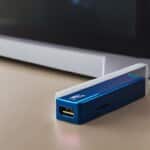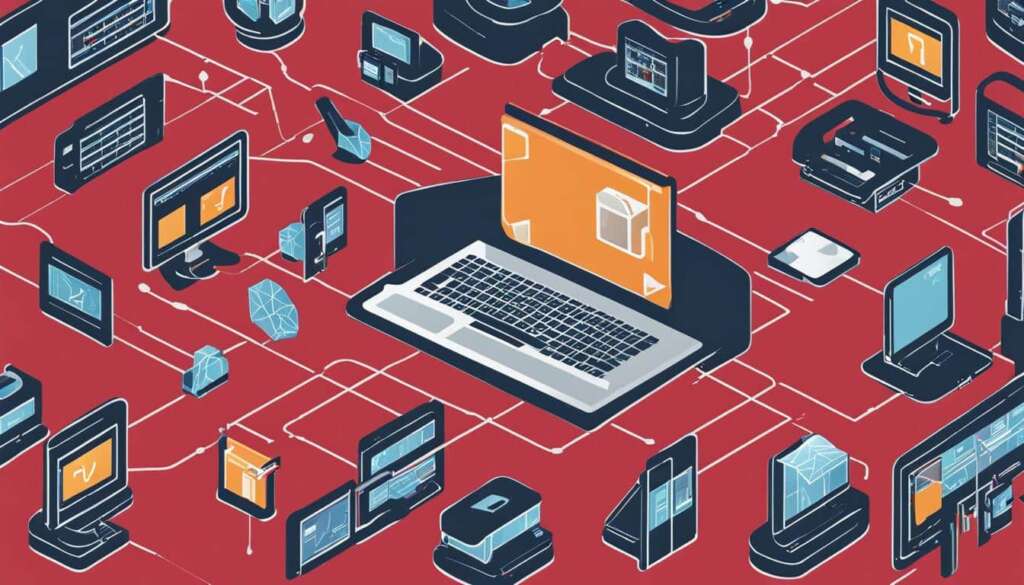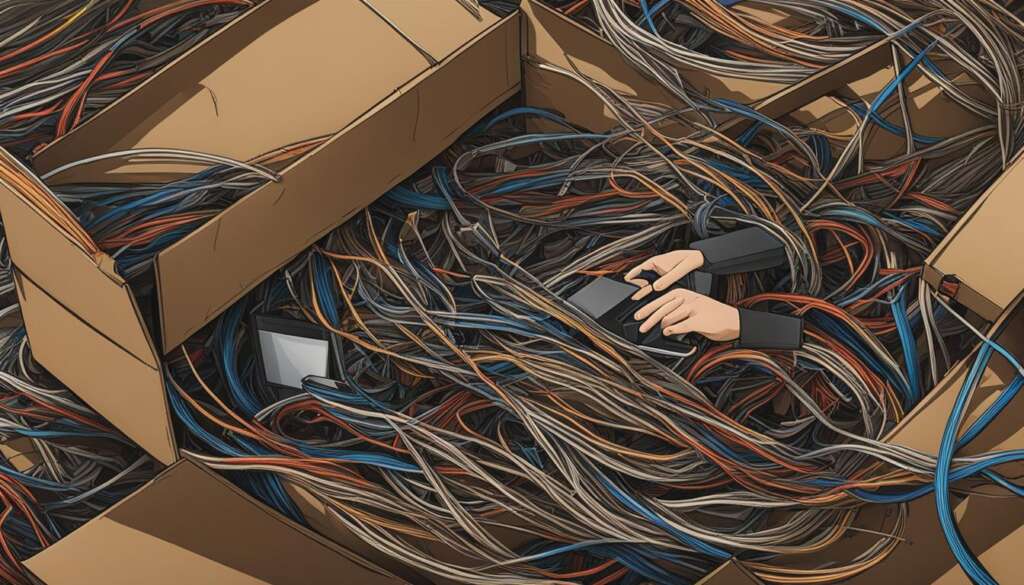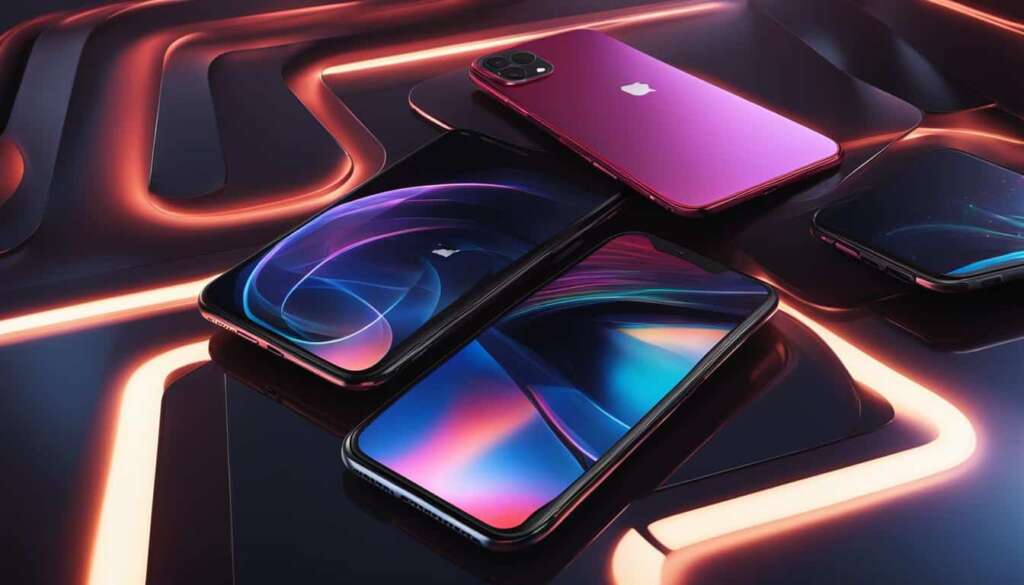Table of Contents
In today’s digital age, connectivity plays a vital role in our daily lives. Whether it’s for work, education, or entertainment, we rely on wireless communication technologies to stay connected. While Wi-Fi has been the go-to option for many years, a new player is emerging on the scene: Li-Fi technology.
Li-Fi, short for Light Fidelity, offers a revolutionary approach to wireless data transmission by using light waves instead of traditional radio waves. This technology, defined by the IEEE 802.11bb standard, has the potential to outshine Wi-Fi in several key aspects.
So, what are the advantages of Li-Fi over Wi-Fi? Let’s explore.
Faster Internet Speeds and Greater Bandwidth
One of the key advantages of Li-Fi over Wi-Fi is its ability to provide faster internet speeds and greater bandwidth. By using advanced modulation techniques and leveraging the properties of light waves, Li-Fi can achieve data transfer speeds of up to 100 Mb/s per square meter. This makes it ideal for densely populated areas such as conference rooms and classrooms. Unlike Wi-Fi, which operates in the crowded radio spectrum, Li-Fi operates in a less congested light spectrum, allowing for faster and more efficient data transmission.
With Li-Fi, users can experience a significant boost in their internet speeds, enabling faster downloads, smoother streaming, and quicker web browsing. The increased bandwidth offered by Li-Fi means that multiple devices can connect simultaneously without causing a drop in performance. This is especially beneficial in environments where many users require high-speed internet access, such as universities, airports, and large office spaces.
The use of light waves for data transmission also eliminates the limitations of traditional Wi-Fi, such as signal interference from walls and obstacles. Li-Fi signals are confined to the area covered by the light source, ensuring a more reliable connection and minimizing the chances of signal degradation.
Furthermore, the absence of radio waves in Li-Fi technology makes it immune to electromagnetic interference. This increases the overall stability of the network and reduces the risk of signal disruptions caused by external factors.
Overall, Li-Fi’s faster internet speeds and greater bandwidth provide users with a superior wireless communication experience, enabling them to make the most of the digital world.
More Secure Data Transmission and Reduced Interference
Li-Fi not only offers faster internet speeds and greater bandwidth, but it also provides more secure data transmission and lower interference compared to Wi-Fi. These advantages make Li-Fi an attractive option for individuals and businesses alike.
With Li-Fi, data transmission is confined to the physical boundaries of the light signal, such as the inside of a room. This confinement makes it challenging for unauthorized users to intercept or access the data being transmitted. Unlike Wi-Fi signals that can extend beyond walls and into neighboring spaces, Li-Fi’s limited range ensures a more secure and private connection.
Additionally, Li-Fi operates in the light spectrum, which has fewer competing technologies compared to the crowded radio spectrum used by Wi-Fi. This reduced competition results in lower interference, providing users with a more reliable and robust wireless experience. Businesses dealing with sensitive data can benefit from this enhanced security and reduced risk of interference, ultimately safeguarding their valuable information.
Overall, Li-Fi’s more secure data transmission and reduced interference make it a compelling alternative to Wi-Fi, particularly in situations where privacy and data security are paramount.

Energy Efficiency and Future Potential
In addition to its numerous advantages, Li-Fi technology also offers remarkable energy efficiency and holds great promise for the future. Li-Fi devices utilize specially designed lighting fixtures equipped with control units and light emitters to transmit and receive data through light waves. These fixtures can be conveniently installed in various locations, such as ceilings or desk lamps, and connected using power over Ethernet or power-line communications. By leveraging energy-efficient LEDs for data transmission, Li-Fi emerges as a greener and more environmentally friendly alternative to Wi-Fi.
With its efficient use of energy and light-based data transmission, Li-Fi minimizes energy consumption, reducing the strain on resources and contributing to sustainability efforts. The emphasis on energy efficiency aligns with the growing global focus on reducing carbon footprints and adopting renewable technologies. Li-Fi’s eco-friendly characteristics make it an appealing option for businesses, institutions, and individuals looking to integrate energy-efficient solutions into their daily operations.
Looking ahead, the future potential of Li-Fi is highly promising. As the technology continues to evolve, experts anticipate significant advancements in range, bandwidth, and interoperability. These advancements will extend the reach and capabilities of Li-Fi, opening up new possibilities in various sectors, including healthcare, transportation, and smart cities. Furthermore, ongoing research and development efforts are expected to enhance security protocols, addressing concerns and making Li-Fi an even more secure option for sensitive data communication.
As the world embraces the advantages of Li-Fi and its energy-efficient properties, the future points towards a more connected and sustainable society. With the continued growth and innovation in Li-Fi technology, we can envision a future where data can be transmitted effortlessly through light waves, offering faster, more secure, and greener wireless communication solutions.
FAQ
How does Li-Fi technology work?
Li-Fi technology uses light waves instead of radio waves to transmit and receive data. It utilizes special lighting fixtures with control units and light emitters to communicate data through the light spectrum.
What are the advantages of Li-Fi over Wi-Fi?
Li-Fi offers several advantages over Wi-Fi, including faster internet speeds, more secure data transmission, lower interference, and greater bandwidth. It operates in the less congested light spectrum and provides a reliable and efficient wireless experience.
Can Li-Fi provide faster internet speeds and greater bandwidth?
Yes, Li-Fi can achieve data transfer speeds of up to 100 Mb/s per square meter, making it ideal for crowded areas where a high level of connectivity is required, such as conference rooms and classrooms. Its advanced modulation techniques and utilization of light waves enable faster and more efficient data transmission.
Is Li-Fi more secure than Wi-Fi?
Yes, Li-Fi provides more secure data transmission compared to Wi-Fi. It operates within the physical boundaries of the light signal, making it difficult for unauthorized users to intercept the data. Its confined communication area enhances data security.
Does Li-Fi experience lower interference compared to Wi-Fi?
Yes, Li-Fi operates in the light spectrum, which has fewer competing technologies compared to the crowded radio spectrum used by Wi-Fi. This results in lower interference and a more reliable and robust wireless experience.
How is Li-Fi more energy-efficient?
Li-Fi devices use energy-efficient LEDs for data transmission, making it a more environmentally friendly option compared to Wi-Fi. These devices can be connected via power over Ethernet or power-line communications, reducing power consumption.
What is the future potential of Li-Fi?
Li-Fi technology is still evolving, and advancements in range, bandwidth, and interoperability are expected. As it continues to develop, Li-Fi has promising future potential, expanding its applications and market reach.







